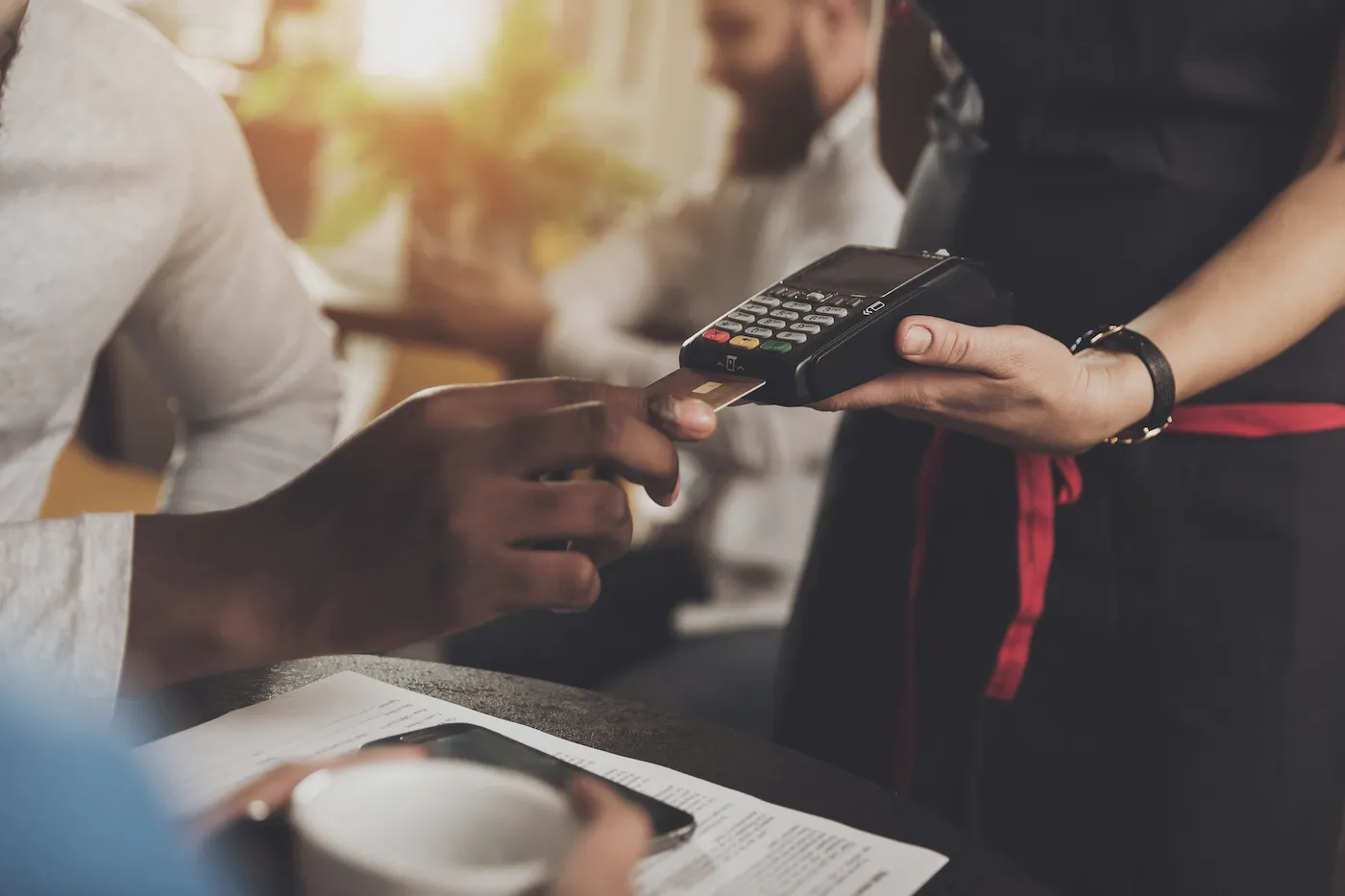Survey: Digital Tipping Is Everywhere, but More Are Pushing Back
Quick Answer
Consumers are more likely to resist digital tipping for services that only more recently adopted electronic payments for smaller transactions, like at coffee shops and food trucks.

Experian surveyed 1,146 adults with a debit card about their views on tipping. Survey conducted September 17-18, 2023. The sample was collected using a third-party company and was not from Experian's consumer credit database.
Suffering from tipping fatigue? You're not alone, according to a recent Experian survey of over a thousand consumers.
Our survey indicates that while consumers by and large continue to tip when they're prompted electronically, such as through an app or touchscreen register, there are circumstances where they won't tip at all. In addition, some consumers say financial constraints are preventing them from tipping more than they would like, compared with the same time last year.
As We Rely Less on Cash, Tip Asks Become More Impersonal
Tipping is part of U.S. culture, with its history in everyday transactions going back to at least the 19th century. It's also much more widespread than in other nations, to the consternation of many foreign tourists visiting the States.
In this survey, we don't look at "traditional" tipping behavior involving cash transactions, usually reserved for sit-down restaurants, hotel staff and holidays. Instead, we're taking a close look at the rise of digital tipping—a relatively recent trend in which a customer is prompted during a transaction with a screen or digital pad at the point of sale.
Tipping Is Seemingly Everywhere Your Card Is Accepted
Point-of-sale tipping began about 10 years ago, as mobile payment tech companies began to harness the power of both mobile payments and provide credit card processing technology to small- and mid-sized businesses, like coffee shops, food trucks and street vendors. As the technology spread, so did the number of industries using it—including its tipping function, as you can see below.
Question: Which of these services asked you for a tip via touchscreen checkout register or payment app in the past 30 days?
Two-thirds of those surveyed said they've been asked for a tip via touchscreen when they paid for their takeout or to-go order—more than any other electronic transaction. That could be a function of food orders being more commonplace than other transactions, but still significant as tipping used to be nonexistent on many transactions aside from a visibly placed tip jar a few years ago.
In our survey, we didn't expect our survey choices of traditional places where consumers encountered tip prompts—such as coffee shops, rideshares and pizza parlors—to cover all situations. For that reason, we gave survey takers the option to add their own observations.
Some of the more surprising transactions where consumers we surveyed said they were prompted for a digital tip included:
- Piercing/tattoo shop
- Political donation
- Convenience store
- Massage therapist
- Ice cream shop
- Baseball game
- Liquor store
- Beauty salon/barber shop/hair stylist
- Gas station
- Dog groomer
- Smoke shop
- Car wash
Tipping Pushback Most Evident at the Checkout Register
Has there been a reaction to the seeming ubiquity of tipping? Judging by some recent headlines, the backlash appears to be on. An opinion column published by The Guardian in August, for example, put it bluntly: "There is now almost no payment transaction in the U.S. that doesn't involve a prompt for a tip."
However, those who traditionally receive tips, such as hotel workers and waitstaff, appear to be spared most of the wrath from consumers.
Question: Thinking about the most recent transaction you were asked to leave a tip digitally, did you tip on …
Similarly, most consumers will consider tipping, provided that it's for a service where tipping had existed long before apps and customer-facing registers became the norm.
Question: Did you feel that the transaction warranted a tip or gratuity?
Service Industry, Guilt and Inflation
Tips are an essential part of an overall wage for many service workers, particularly those workers where service minimum wages are below that of a state-mandated minimum wage in many states. Many respondents said they are aware that tipping is important for workers who rely on tips to make a living.
Nonetheless, there's some polarization among the overall population about tipping, even if it isn't along the lines of age, household income or gender. Some proudly tip generously, while others indicate that they shouldn't be subsidizing an owner's payroll with a tip, particularly for point-of-service transactions.
Many consumers in our survey acknowledged feeling the pinch, due to inflation or being unemployed, and feel increasingly conflicted between their own personal finances and those of the workers when it comes to tipping. And still other respondents feel pressure to tip, either because it is expected or because of impersonal prompts provided by digital systems.
Methodology: The analysis results provided are based on an Experian-created statistically relevant aggregate sampling of our consumer credit database that may include use of the FICO® Score 8 version. Different sampling parameters may generate different findings compared with other similar analysis. Analyzed credit data did not contain personal identification information. Metro areas group counties and cities into specific geographic areas for population censuses and compilations of related statistical data.
FICO® is a registered trademark of Fair Isaac Corporation in the U.S. and other countries.
What’s on your credit report?
Stay up to date with your latest credit information—and get your FICO® Score for free.
Get your free reportNo credit card required
About the author
Chris Horymski leads Experian Consumer Service’s data research for Ask Experian, where he publishes insights and analysis on consumer debt and credit. Chris is a veteran data and personal finance journalist and previously wrote the Money Lab column for Consumer Reports and headed research at SmartMoney Magazine.
Read more from Chris